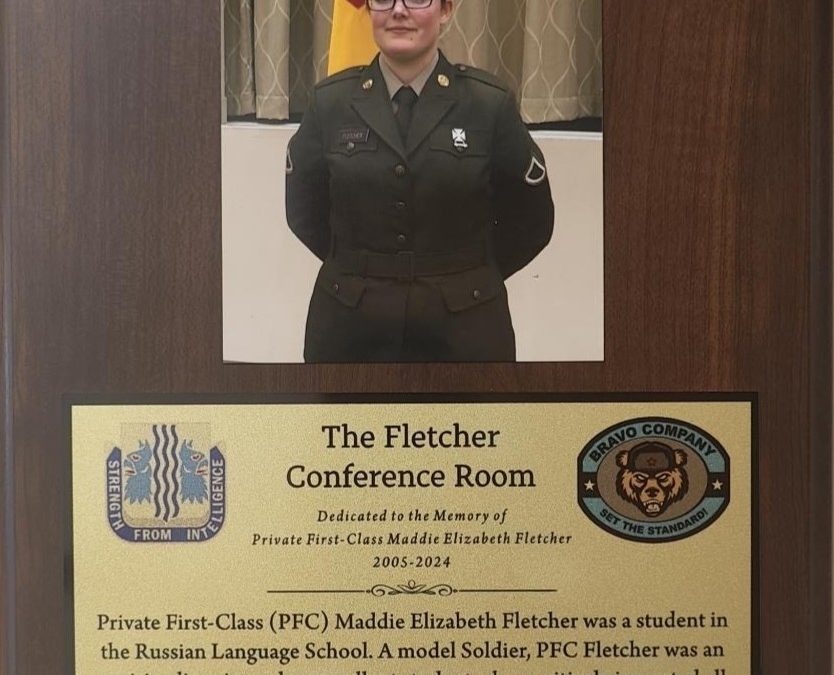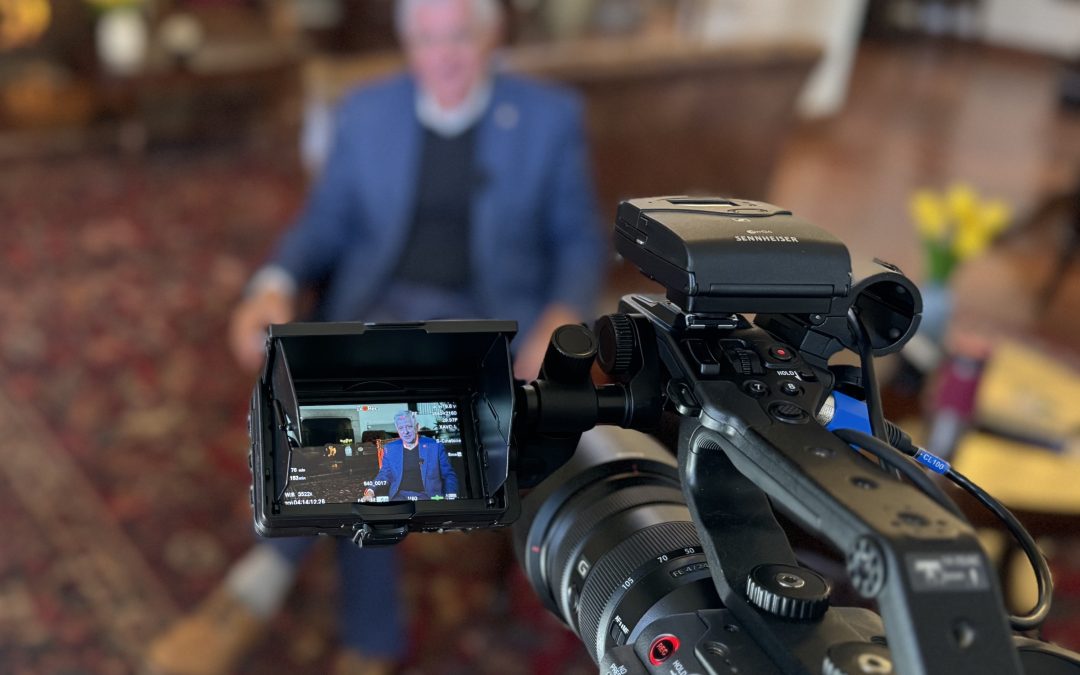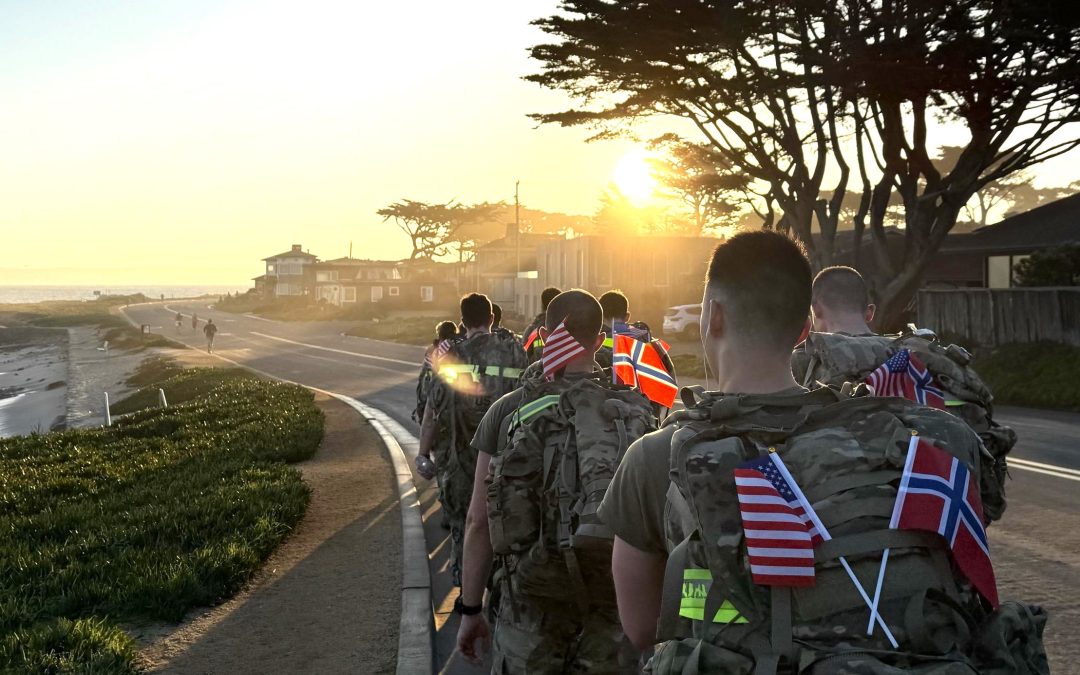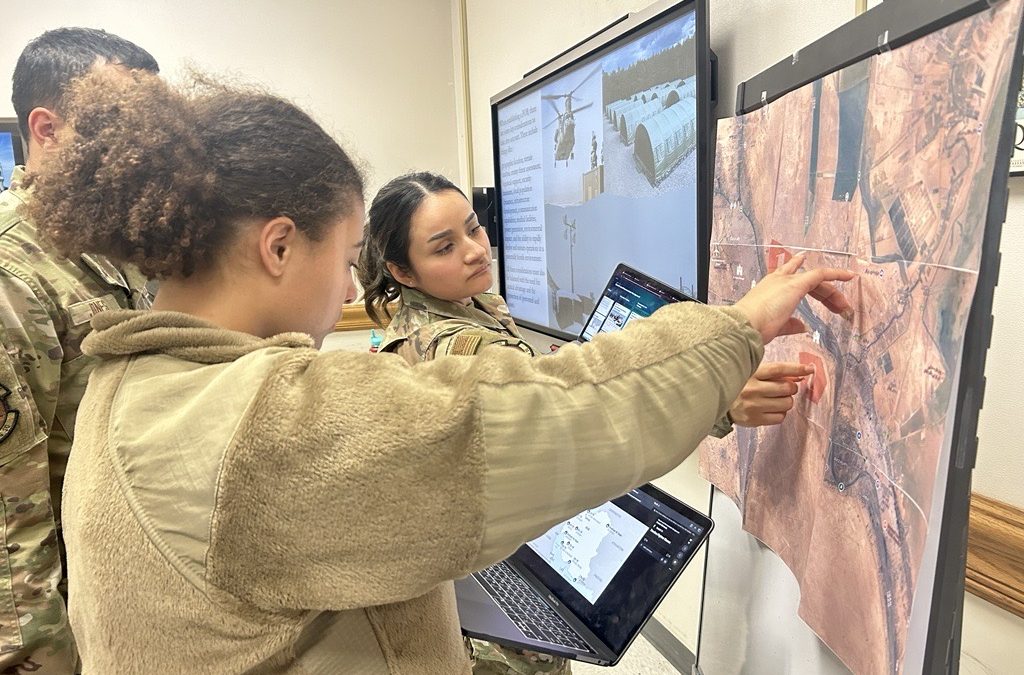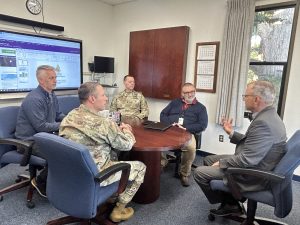
The four colleagues from the U.S. Military Academy at West Point visited the Defense Language Institute Foreign Language Center Oct. 24-25.
The U.S. Military Academy at West Point visited the Defense Language Institute Foreign Language Center Oct. 24-25. The visit was part of an effort by DLIFLC to expand its collaborative initiatives across the Department of Defense.
“This visit creates new pathways for collaboration in military language education,” said Dr. Siyi Gao, an academic specialist at DLIFLC who helped coordinate the trip.
The West Point team joined in for DLIFLC’s 10th Realistic Expectations for Achievable Learning Forum, held on October 25. Col. Zachary Miller, PhD, an Academy Professor of Portuguese, contributed as a panelist, while Dr. Jeffrey Watson, an Associate Professor of Linguistics, delivered a guest presentation.
Organized by the DLIFLC Academic Specialists Council, the Forum explored the theme Empowering Every Learner: Effective Interventions for Success. It provided a platform for cross-organizational collaboration and knowledge sharing, focusing on effective strategies for student success.
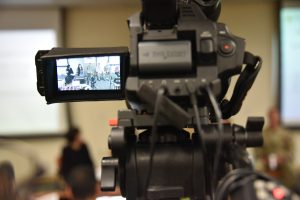
The West Point team joined in for DLIFLC’s 10th Realistic Expectations for Achievable Learning Forum, held on October 25. Col. Zachary Miller, PhD, an Academy Professor of Portuguese, contributed as a panelist.
During the visit, the two institutions discussed future collaboration to include expanding faculty exchange programs and student immersion programs, and identifying key points of contact to streamline future collaboration.
The relationship between USMA and DLIFLC has grown over the last few years through exchanges and joint initiatives, strengthening both institutions’ ability to cultivate cultural competency and operational readiness among their students and faculty. For DLIFLC, the partnership aligns with the FY25 and Beyond Strategic Plan—to embolden partnerships with allies and academic institutions to optimize instruction—as they benefit from exposure to USMA’s research and leadership practices. USMA faculty and cadets, meanwhile, gain insights from DLIFLC’s language program practices and curricula.
Both USMA and DLIFLC are just two of a handful of DoD institutions that offer students an opportunity to obtain a bachelor’s degree with a major in a foreign language. And as such, the strategic partnership has, at its core, the power of education in the humanities.

